Post Stroke Rehabilitation with Brain-Computer Interfaces (BCI)
A brain-computer interface (BCI) is a system that interprets brain signals generated by the user, allowing it to send specific commands from the brain to an external device.
It is suggested that the combination of rehabilitation paradigms with BCI, taking advantage of cortical plasticity, could be beneficial for functional recovery after stroke. Therefore, BCI systems represent promising tools in the field of rehabilitation.
The aim of this thesis project is to investigate how to use BCI systems for post stroke rehabilitation, focusing on neuromodulation techniques using Hebbian plasticity and movement-related cortical potentials with an optimal number of EEG electrodes. Initially, a (pseudo real-time) detector will be developed for the self-paced BCI system, based on motion intention detection. Then, with the knowledge gained, a subject-independent detector will be developed, and the results obtained will be compared.
Project funded by:

More projects
The aim of this thesis project is to investigate how to use BCI systems for post stroke rehabilitation, focusing on neuromodulation techniques using Hebbian plasticity and movement-related cortical potentials with an optimal number of EEG electrodes. Initially, a (pseudo real-time) detector will be developed for the self-paced BCI system, based on motion intention detection. Then, with the knowledge gained, a subject-independent detector will be developed, and the results obtained will be compared.
Project funded by:

More projects


